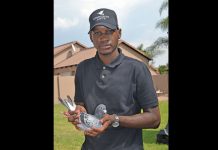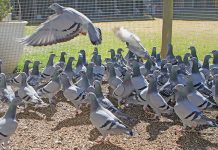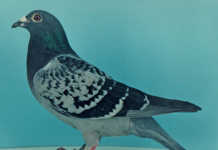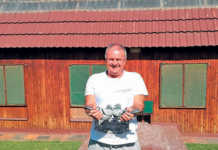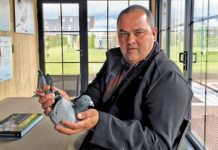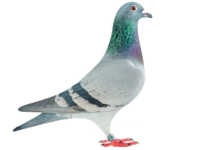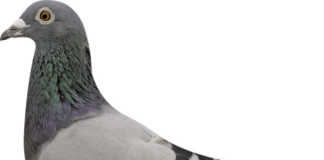I’ve been involved with racing pigeons since 1968, but I don’t claim to know it all. However, I have had some excellent teachers and mentors, and a fair amount of practical experience. So the law of averages means I might just have something to share. In the Sun City Million Dollar Pigeon Race (SCMDPR), participants may enter one main pigeon with three back-ups to replace it in case it strays. The race director recently told me that I’m the only participant to have entered only one pigeon on three occasions with no back-ups and score in the final event. So, I’ve helped many fanciers countrywide select and match their racing pigeons. In turn, this has helped improve my selection skills as it’s involved examining a diverse number of pigeon strains and families.
Tips for selecting and matching pigeons
Champion racers often fail to produce offspring that are good racers. In Taiwan, for example, many expensive champions are reportedly used as feeders for other pairs’ chicks, because they haven’t passed their “skills” on to their progeny. You won’t automatically get superior-quality racers through matching champion pigeons with top-performing mates. The hit-rate of success of matings in world-champion lofts is no more than 7% – therefore, paying astronomical amounts of money for champion pigeons won’t buy you success. Often the first generation progeny of Super Champions are poor racers but better producers. The late Flor Vervoort of Belgium owned and bred many Olympiad Champion racers, including Fieneke 5000, one of the best racers Europe has seen. Yet her direct children were disappointing racers, but better breeders. It often happens that the brothers or sisters of champion racers breed better offspring. The full sister to Fieneke 5000 is Fieneke 086, and she produced exceptional pigeons. The Sire of Fieneke 5000 is the brother of Olympic Utrecht.
The genetic composition and strength of the prepotency can’t be seen except through experimental breeding and progeny testing. Still, we must not pick our stock material blindly. We should stay close to the family tree of winning genes in as many pigeons possible. Since genetic suitability is the most important single factor, the pedigree we use must contain a number of super breeders on both the paternal and maternal side.We should breed at least six youngsters from a new mating to properly test breeding potential, provided the birds are in optimal health. An entire colony of champion pigeons can be created through the passing-on power of a single pair that clicked as a match.A cock or hen with extraordinary passing-on power may lift the quality of a loft in more than one mating. In other words, a single foundation pigeon may take you to fame. The challenge then is ensuring the quality you started with doesn’t fade.
Continuous and indiscriminate cross-breeding of champion racers to each other dilutes the strength of the winning gene pool, while systematic inbreeding weakens the gene pool.
Intensive inbreeding can be more successful with certain families, but should be controlled through strict selection. For example, numerous top scorers in the SCMDPR are the product of an out-cross between direct offspring of super producers and racers of international acclaim. Buying these crossed performing offspring is a good idea, but mating them to cross-breeds again may destroy the genetic potential. Successful results are also claimed with “love matings”. That’s when a bird chooses its own mate. But the genes have to be there! And human intervention is necessary to study the genotype and phenotype to determine what makes a “click” and copy it. Finally, try line-breeding the key producers of a world-class winning family, in mating super racers to selected sons and daughters of super breeders. This is a notable pattern in the reproduction of champions in later generations. Contact Thomas Smit 011 680 4778 or e-mail at [email protected]. |fw

